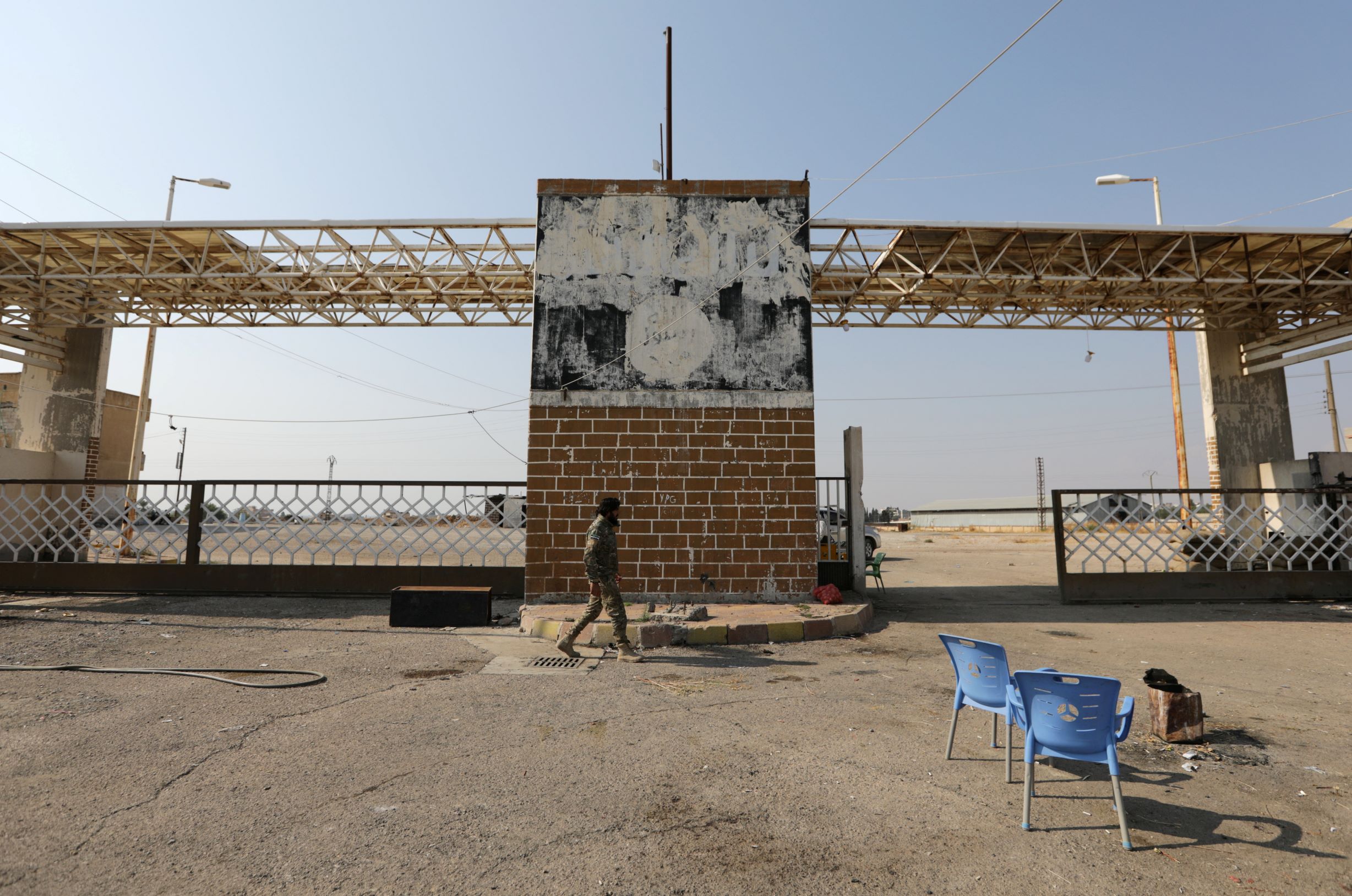
Erdogan says world cares more about Syria’s oil than its children
By Stephanie Nebehay and Emma Farge
GENEVA (Reuters) – Turkish President Tayyip Erdogan urged world powers on Tuesday to help it resettle 1 million Syrian refugees very soon, accusing governments of moving more quickly to guard Syria’s oil fields than its children.
Erdogan, whose country hosts 3.7 million Syrian refugees, the largest refugee population worldwide, said more than 600,000 should voluntarily join around 371,000 already in a “peace zone” in northern Syria from which Turkey drove Kurdish militia.
“I think the resettlement can easily reach 1 million in a very short period of time,” Erdogan told the Global Forum on Refugees in Geneva.
The plan met with scepticism from Jan Egeland, Secretary-General of the Norwegian Refugee Council, who said that while Turkey was far ahead in terms of hosting refugees, resettling Arab refugees in areas previously populated by Kurds was wrong.
“I hope this will not happen, really. It shouldn’t happen,” Egeland told Reuters.
Turkey has said it expected the Syrian Kurdish refugees it hosts, who number around 300,000, to be the first to return to the area between the border towns of Ras al Ain and Tel Abyad.
Filippo Grandi, U.N. High Commissioner for Refugees, said returns must be voluntary, refugees should be given support and property and other legal issues must be addressed.
“We are also urging the Syrian authorities to allow us a presence in the areas where people return because this could be a confidence-building measure,” Grandi told a news conference.
HIGH COST
Erdogan said Turkey had spent more than $40 billion hosting the refugees and criticized the European Union, which had pledged nearly 6 billion euros ($6.61 billion), for failing to deliver around half of that sum.
The European Commission has said it is committed to delivering the aid.
Two months ago, Turkey and its Syrian rebel allies launched a third cross-border offensive into northern Syria against the YPG, which had spearheaded the fight against Islamic State.
After seizing a 120-km (75 mile) strip of land from Ras al Ain to Tel Abyad in northeastern Syria, Ankara signed deals with Washington and Moscow to halt its assault.
Erdogan, taking a thinly veiled swipe at the United States, which moved quickly to guard Syrian oil fields after the retreat of Islamic State, said: “Unfortunately the efforts that were spared to protect the oil fields were not mobilized for the safety and security of the children in Syria.”
Ankara views the YPG as a terrorist organization linked to Kurdish insurgents on its own soil and has said the U.S.-led NATO alliance should be supporting its fellow member Turkey instead.
Turkey had said it could settle 2 million Syrian refugees in a planned “safe zone” stretching 444 km (275 miles) in northern Syria and has repeatedly urged NATO allies to help fund the plans. Last week, Erdogan said Turkey may settle 1 million refugees between Ras al Ain and Tel Abyad alone.
On Tuesday, Erdogan reiterated that Turkey could build housing and schools in the zone as it has in other parts of northern Syria after driving out the YPG.
Around 150 Kurds demonstrated outside the U.N. European headquarters during his speech. Ramazan Baytar, head of the Kurdish Democratic Society Center in Switzerland, said Erdogan was using the refugee issue to enact demographic change. Turkey has blamed changing regional demographics on the YPG.
(Additional reporting by Ali Kucukgocmen and Tuvan Gumrukcu in Turkey and by Cecile Mantovani in Geneva; writing by Stephanie Nebehay and Tuvan Gumrukcu; editing by Philippa Fletcher)











